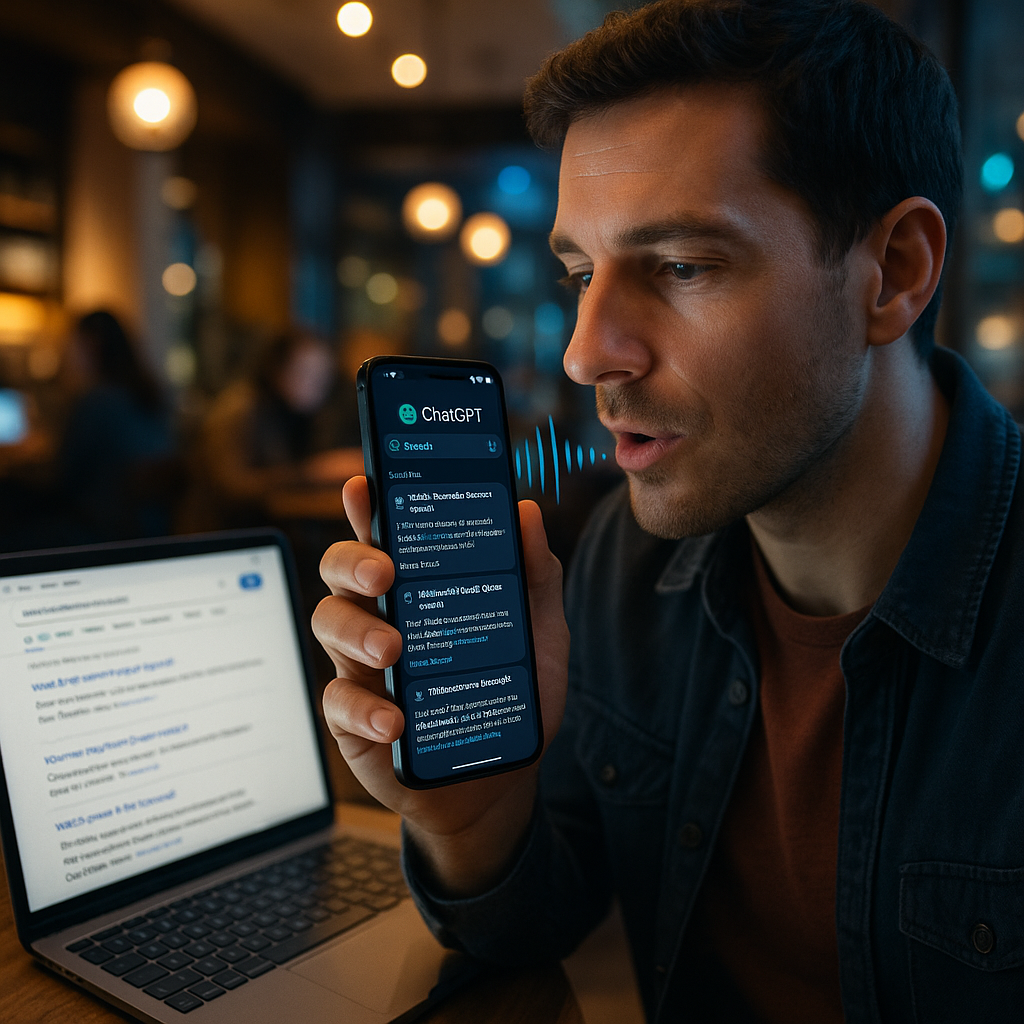Key Takeaways
- ChatGPT search is now free for all: OpenAI’s web search is available without payment or account signup, expanding access globally.
- Mobile and voice access added: Users can access ChatGPT search through mobile devices using voice commands for greater convenience.
- Real-time answers challenge traditional search engines: The update establishes ChatGPT as a viable alternative to Google and Bing for current information.
- User data and privacy highlighted: As usage increases, OpenAI faces growing attention to how it handles questions and user data.
- Further features and integrations planned: OpenAI has announced ongoing enhancements, with expanded app support and advanced search capabilities expected later this year.
Introduction
OpenAI has launched global, free access to its ChatGPT web search tool, now available on desktop and mobile with added voice command features. Announced this week, the move makes real-time AI search available to all. No subscription or login required. This positions ChatGPT as a competitor to traditional search engines and signals a shift in how users find reliable information online.
What’s Changing with ChatGPT
OpenAI has eliminated the subscription requirement for ChatGPT’s search function, making AI-powered search free to all users. Anyone can now access real-time information through ChatGPT’s interface without payment or account creation.
The global rollout began Tuesday and will reach all regions where ChatGPT operates within the week. Previously, access to up-to-date information required a ChatGPT Plus subscription at $20 per month.
Now, users can visit the ChatGPT website or download the mobile app to start searching immediately. This change reflects OpenAI’s commitment to making AI tools broadly available to the public.
Un passo avanti. Sempre.
Unisciti al nostro canale Telegram per ricevere
aggiornamenti mirati, notizie selezionate e contenuti che fanno davvero la differenza.
Zero distrazioni, solo ciò che conta.
 Entra nel Canale
Entra nel Canale
Voice and Mobile Features
The introduction of free search coincides with improved mobile accessibility, including new voice interaction capabilities. Users can speak queries directly to ChatGPT in the mobile app and receive both text and optional voice responses.
Voice search is available on iOS and Android, with OpenAI stating that responses arrive in under a second. The app offers multiple voice options so users can tailor the experience to their preferences.
These mobile app updates are live in app stores, with automatic updates rolling out to current users. These enhancements make ChatGPT more accessible for searches on the move and for those who prefer voice over typing.
How the New Search Works
ChatGPT search pulls information from the open web to deliver current, cited results, rather than relying only on its pre-existing training data. When users ask about recent events or information, the system automatically searches the internet and responds with links to sources.
The search includes built-in fact-checking that cross-references details across multiple sources before presenting results. This represents a significant step beyond earlier versions of ChatGPT, which could not access real-time information and occasionally produced outdated or incorrect answers.
Users see a clear distinction between responses based on ChatGPT’s internal knowledge and those retrieved from the web. Results include citation links, allowing direct verification from original sources.
Data security and trust in sourcing have become increasingly important as users rely more on web-based AI tools for information.
Comparison to Existing Search Tools
Unlike traditional search engines providing lists of links, ChatGPT search delivers conversational answers synthesized from multiple sources. This design aims to save users time by compiling information in one place.
ChatGPT maintains conversational context across multiple queries, differing from Google’s AI Overview feature. Users can ask follow-up questions without repeating original terms, creating a more natural search experience.
OpenAI acknowledges that for specialized tasks like shopping comparisons or map searches, their functionality may not match dedicated engines. ChatGPT search is presented as a complement to existing tools, not a full replacement.
Browser extensions and productivity add-ons may further enhance user efficiency in tandem with AI-powered search.
Privacy and Data Considerations
OpenAI stated that search queries are retained to improve the service, though users may delete their history manually within the interface. The updated privacy policy indicates web searches are stored separately from conversation data.
Users concerned about privacy can use ChatGPT search without creating an account, though this limits some customization features. Anonymous usage restricts personalization but still grants full access to core search functions.
The company emphasizes that, while system data is collected to enhance the tool, personal information is not sold to third parties or used for advertising. This stance contrasts with some traditional search engines that rely heavily on advertising revenue.
End-to-end encryption and robust privacy controls remain a focal point for digital privacy advocates as AI-powered services proliferate.
Business Model and Strategy
Offering free search represents a strategic change for OpenAI, designed to attract millions of new users to its ecosystem. The company is prioritizing broad adoption over immediate revenue from these features.
Un passo avanti. Sempre.
Unisciti al nostro canale Telegram per ricevere
aggiornamenti mirati, notizie selezionate e contenuti che fanno davvero la differenza.
Zero distrazioni, solo ciò che conta.
 Entra nel Canale
Entra nel Canale
OpenAI CEO Sam Altman stated that removing barriers to AI tools allows more people to benefit directly. He emphasized that search is a fundamental capability that should be universally accessible.
OpenAI continues to offer a subscription model for advanced features, such as GPT-4o access, higher message limits, and priority during peak times. This tiered approach provides free access for casual users while maintaining revenue from power users and enterprise customers.
AI-driven transformations are expected to impact a wide range of digital routines and workflows. Read more about how to build a smart digital routine to maximize efficiency and balance.
Conclusion
OpenAI’s decision to provide free ChatGPT search with expanded mobile and voice features broadens access to real-time AI-powered answers and positions the service as a convenient, privacy-conscious alternative to traditional search engines. This update marks a significant advance in making AI-driven knowledge accessible to everyday users.
What to watch: the rollout’s completion and user feedback as global adoption of the new features progresses in the coming week.





Leave a Reply